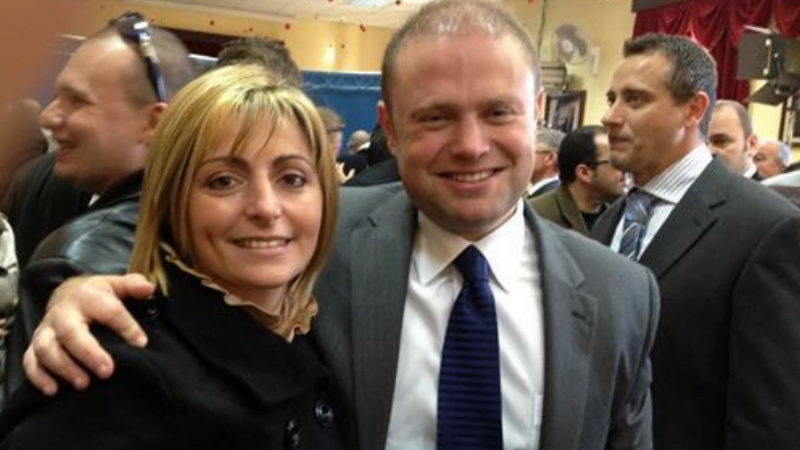Justice Joanne Vella Cuschieri has ruled that Malta Enterprise’s right to secrecy trumps Freedom of Information laws and the public’s right to know.
Just what is Malta Enterprise trying to hide from you?
It wants to prevent the release of a controversial memorandum of understanding (MoU) that it signed with the investors behind Vitals Global Healthcare (VGH).
The existence of this agreement shows the government promised the contract to VGH before the bidding process began. This is called ‘bid rigging’, and it is illegal.
The document is so sensitive that Malta Enterprise won’t even let the Data Commissioner see it, and so the Commissioner can’t assess the merits of the Freedom of Information request filed by The Times of Malta back in November 2016.
This week, Judge Joanne Vella Cuschieri ruled that the controversial agreement should remain hidden because it formed part of commercially-sensitive negotiations — the very same negotiations which led to a major hospitals contract worth some €7 billion being given to a consortium that had no prior experience in the healthcare field.
This document should have been public all along. The people are fully entitled to know what the government is doing in their name. So why do the courts seem to be blocking the path to public scrutiny?
This wasn’t the only controversial decision made by one of Malta’s newest Judges. Earlier this month, Judge Cuschieri ruled that two articles published by The Malta Independent about the Prime Minister’s Chief of Staff Keith Schembri and his business partner Malcolm Scerri were libellous and of “malicious intent”.
Strangely enough, these exact same articles were the subject of a separate libel suit brought against The Malta Independent by Nexia BT directors Brian Tonna and Karl Cini. In that case, Judge Anthony Ellul ruled that they were “not at all defamatory”.
Surely both of these things cannot be true? How can the two articles be both libellous and not libellous at the same time?
Is this just a case of confusion on the part of the ‘new kid on the block’? Or does the law in Malta now require citizens to inhabit parallel universes?
Judge Cuschieri was one of a group of magistrates promoted in April 2019 by Prime Minister Joseph Muscat soon after the Venice Commission had stated in very clear terms that the Prime Minister should not have the power to appoint Judges.
Muscat agreed with the Venice Commission’s recommendations, of course — and then immediately contradicted them by rushing through three judicial appointments before the system could be reformed. Civil society group Repubblika filed a court application calling for these appointments to be halted until a new system was in place ensuring the judiciary’s independence. That court case is ongoing.
In the meantime, we continue to see alarming and sometimes contradictory judgments. The strange behaviour of Judge Giovanni Grixti is a case in point.
In January 2019, Judge Grixti blocked an inquiry which had been ordered by Magistrate Ian Farrugia into the key players involved in the Panama Papers scandal. Judge Grixti overturned Farrugia’s judgement and ruled that the application, filed by former Opposition leader Simon Busuttil, simply contained allegations rather than evidence of a crime.
Lawyer Jacques René Zammit explained the contradiction in this ruling: “You need an ‘in genere’ inquiry to investigate, find and confirm the existence of proof that may be used for future prosecution of a crime. In order to get an ‘in genere’ inquiry going, you need to provide the type of proof that would normally be found and obtained by the ‘in genere’ inquiry itself.”
For simplicity’s sake, let’s call this the Schembri-Mizzi Paradox. The judges can’t rule if the police won’t investigate, and the police won’t investigate because the judges won’t rule that they should. As long as a case is never decided, then clearly documented instances of corruption and money laundering can forever remain ‘allegations’ and no one will be guilty of anything.
This is not the only time Judge Grixti has blocked an inquiry into the shady dealings of Joseph Muscat’s inner circle.
More recently, in October, he overturned a decision by Magistrate Claire Stafrace Zammit for an inquiry into the conduct of The Three Ministers — Konrad Mizzi, Edward Scicluna and Chris Cardona — and their role in the sale of three pubic hospitals to VGH.
In his ruling, Judge Grixti said that published investigations by journalists were not a suitable basis for starting an inquiry. This might come as a shock to anyone who’s heard of the Watergate Scandal, but it seems that in Malta, published evidence of corruption isn’t a good reason to investigate that corruption.
The learned judge also appears to be suffering from Goldilocks Syndrome, having reprimanded Repubblika for both going into too much detail in their application and for not including enough details to justify an inquiry. I humbly suggest that Muscat use his unfettered power to appoint the three bears to the bench in order to define “just right”.
In the meantime, veteran lawyer Andrew Borg Cardona and Repubblika have filed a letter of complaint to the Commission for the Administration of Justice, asking it to investigate Judge Grixti and his strange rulings.
Can there be any justice for citizens under courts stacked with Muscat’s hand-picked appointees? Recent cases are already revealing that, in Malta, some citizens are more equal than others.












